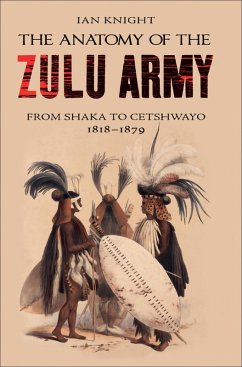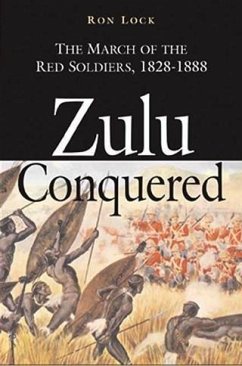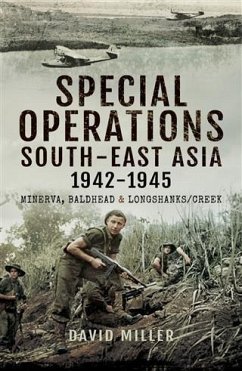
Lord Chelmsford and the Zulu War (eBook, ePUB)
Versandkostenfrei!
Sofort per Download lieferbar
11,95 €
inkl. MwSt.
Weitere Ausgaben:

PAYBACK Punkte
6 °P sammeln!
The Anglo-Zulu war of 1879 was perhaps subjected to much controversy as a result of the epic Zulu victory at the battle of Isandlwana. Lord Chelmsford, the General Officer commanding the invasion force during the war, sustained severe criticism from both journalists and parliament following his actions and conduct at Isandlwana. In 1939 and on the sixtieth anniversary of the battle, Major, the Hon Gerald French, wrote a controversial but riveting book titled'Lord Chelmsford and the Zulu War,' is based on defending both Lord Chelmsford's actions and reputation. The foreword to the book was writ...
The Anglo-Zulu war of 1879 was perhaps subjected to much controversy as a result of the epic Zulu victory at the battle of Isandlwana. Lord Chelmsford, the General Officer commanding the invasion force during the war, sustained severe criticism from both journalists and parliament following his actions and conduct at Isandlwana. In 1939 and on the sixtieth anniversary of the battle, Major, the Hon Gerald French, wrote a controversial but riveting book titled'Lord Chelmsford and the Zulu War,' is based on defending both Lord Chelmsford's actions and reputation. The foreword to the book was written by General Sir Bindon Blood who served under Chelmsford in India and a devoted admirer.French however, had fallen into the error of selective inaccurate source material and false reports that were, at the time, specifically designed to shield Lord Chelmsford from the Isandlwana debacle and conveniently lay such blame on the shoulders of Colonel Anthony Durnford, Royal Engineers, who was present at Isandlwana. For example, in looking for such evidence, French deliberately altered a map that showed the true disposition of the imperial defence line at the battle in order for readers to reach the conclusion that the primary course of the defeat was the retreat of the Natal Native Contingent , that opened a gap in the defence , thus allowing an unopposed Zulu advance.The book is nevertheless a comprehensive and detailed coverage of the Anglo Zulu war from the initial invasion to the final battle of Ulundi some months later, and has been used extensively as bibliography by authors when addressing the subject of the Anglo-Zulu war. This book is highly recommended for those with a historical interest of the events of 1879 and the demise of the Zulu nation.
Dieser Download kann aus rechtlichen Gründen nur mit Rechnungsadresse in A, B, BG, CY, CZ, D, DK, EW, E, FIN, F, GR, HR, H, IRL, I, LT, L, LR, M, NL, PL, P, R, S, SLO, SK ausgeliefert werden.













